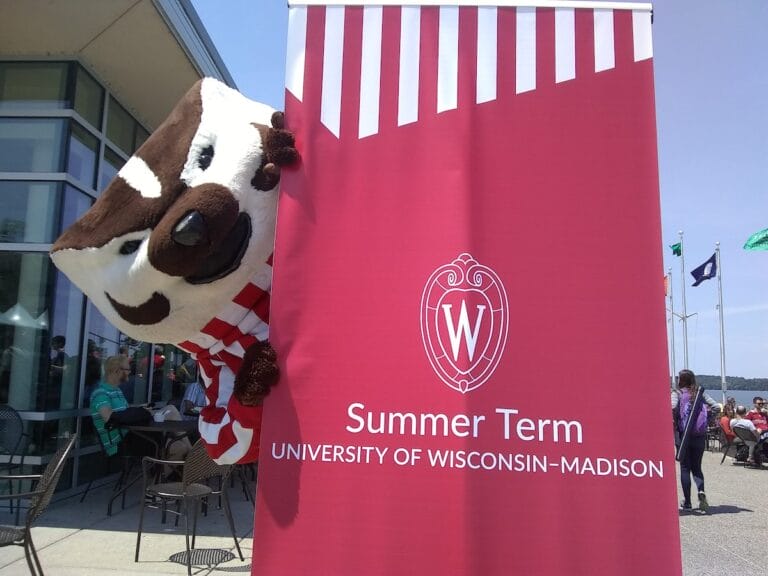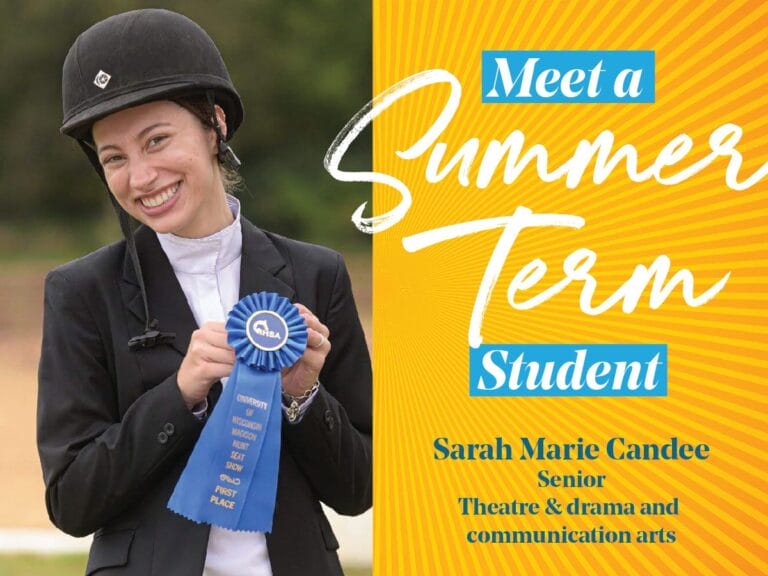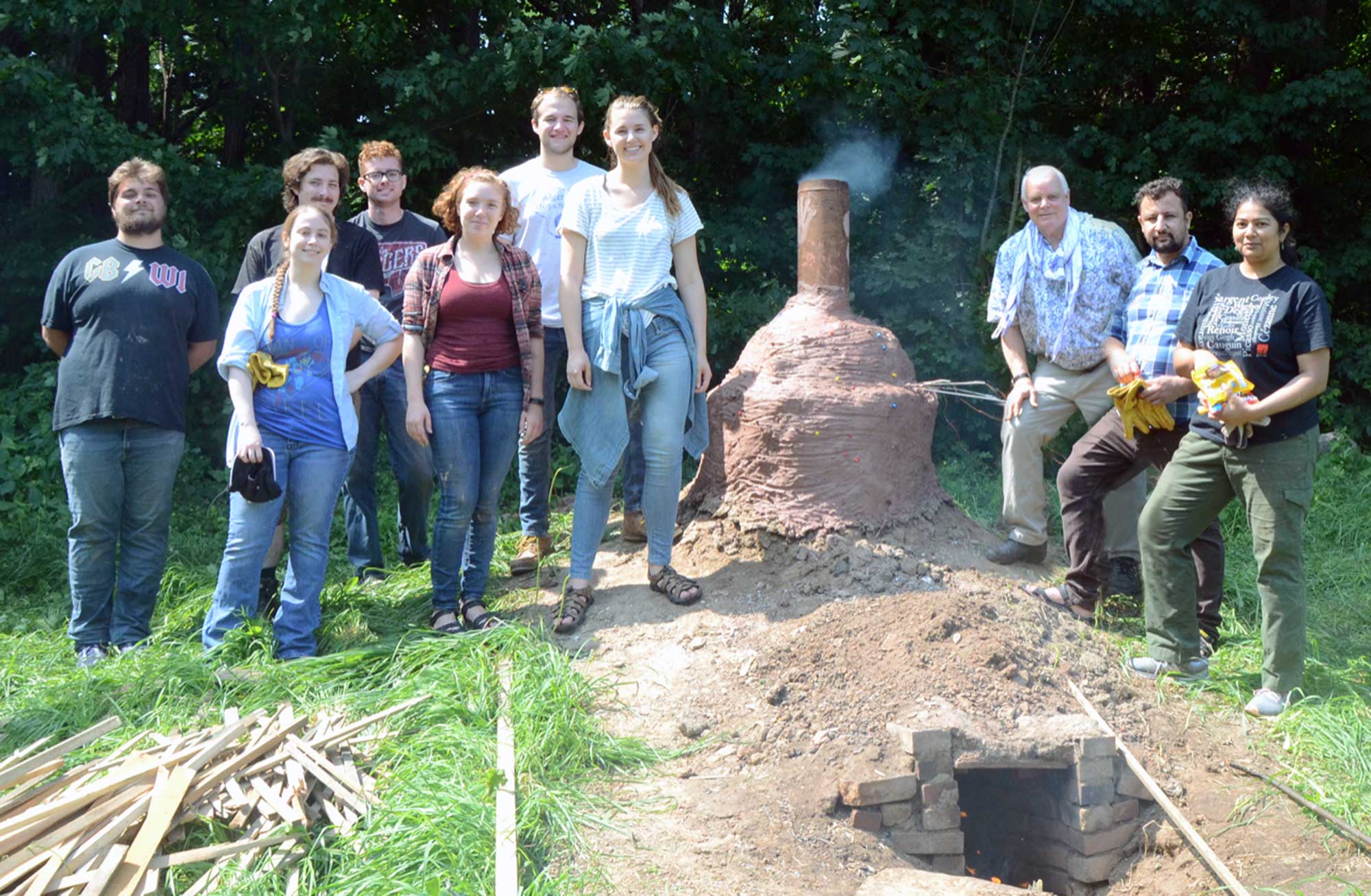
Students recreate ancient artifacts in summer anthropology course
Much like technology impacts modern day culture, ancient technologies affected civilizations all over the world throughout history. But unlike today when many technologies are globally standardized, ancient people created tools with materials sourced from their surrounding environment.
Anthropology 352: Ancient Technology and Invention is a Summer Term course that takes a deeper dive into these traditional technologies, exploring them through a variety of lenses including anthropology, art history, science and ideology. The course explores the impact of key prehistoric and preindustrial inventions on the course of human evolution.
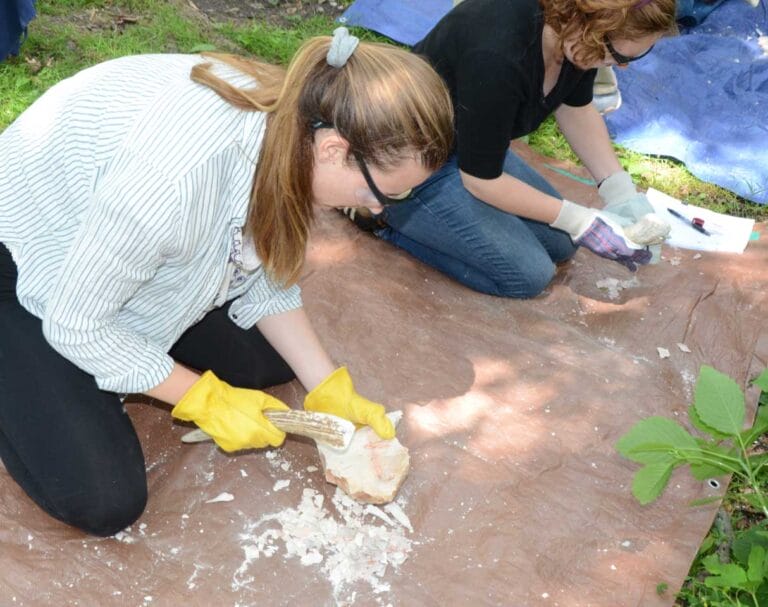
“I think one of the biggest takeaways from this class is that tracing technology through experimental replication can help us understand how tools were made, used and eventually discarded into the archaeological record,” a student review of the course notes. “Studying technological change over time can tell us a lot about the social, ideological and economic aspects of a society.”
Touted by many students as one of the best courses they’ve taken, the 3-credit Anthropology 352 is taught by Professor Jonathan Mark Kenoyer, a seasoned anthropologist active in the field since the 1970s. He is an elected member of the American Academy of Arts and Sciences and a member of the American Anthropological Association.

“I learn new technologies as I help students explore their individual interests and research projects,” Kenoyer says. “It allows me to interact directly with students and help them explore and discover new things.”
Throughout the 8-week course, students study technologies from metallurgy and welding to ceramics and basketry along with their corresponding artifacts through virtual readings, discussions, lectures and films. Every Tuesday and Thursday from 10 a.m. to 12:30 p.m., the course meets in person for the unique experience of recreating the artifacts.
They do so by hand and from original materials, utilizing wood, fiber, ceramics, glazes, antler, bones, copper, bronze, iron and steel. Striving to stay as true to the original process as possible, they use traditional techniques and kilns when available (such as in the photo above of students at the outdoor classroom near Picnic Point). Finally, they document and analyze the reproductions to understand the archaeological processes used to study these ancient technologies.
Because they are using traditional methods to reproduce ceramics, textiles, lithics, beads and other tools, students can experience how advancements in these approaches can shift the progression of societies over time.
The course has made quite an impact on students, especially aspiring anthropologists.
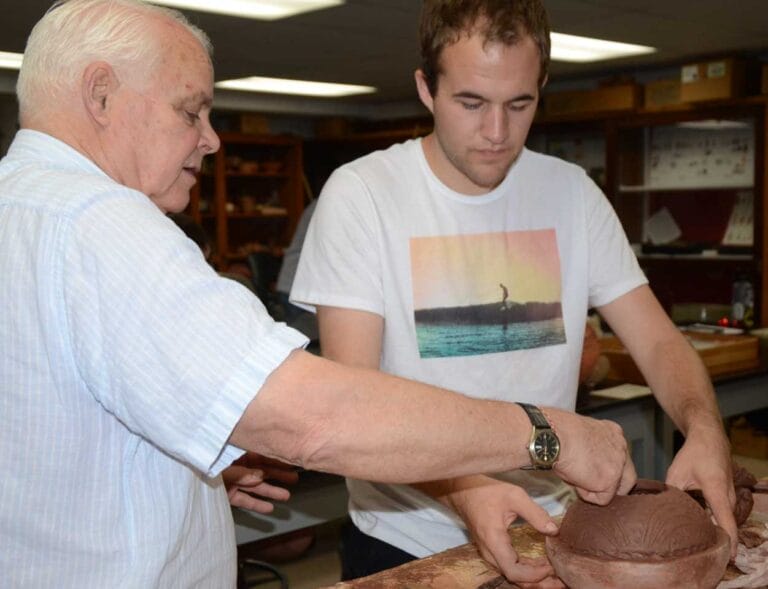
As one student wrote in a review of the course, “I learned so much. I learned the origin of many necessary technologies, the fact that humans will only invent something they need as a response to environment and that techniques are many times preserved through rituals and customs.”
Kenoyer encourages his students to investigate the technologies that are most relevant to their own future research.
“By the end of this class students have a broad understanding of how to examine the changing role of all major types of technologies over time and a detailed understanding of the technology that they focus on for their research,” he says. “Students will learn experimental archaeological replication of various technologies, scientific analyses and presentation skills that will be useful in their future career, particularly if this involves archaeological, anthropological or art-based research.”
Anthropology 352 runs June 14 to August 8 this summer and is open to both undergraduate and graduate students who have taken ANTHRO 102, ANTHRO 112, ANTHRO/AMER IND 208, or ANTHRO 321. It fulfills a Comm B requirement as well as archaeology certificate requirements and coursework for the anthropology major.
Learn more about advancing your academic goals on the Summer Term website.
Published on Jun 21 2021
Last Updated on Oct 24 2024
By uwdcs
Categories: Summer Term
Tags: courses, online, unforgettable experiences
Next Post
New professional certificate helps health care professionals create healthier lives through data
Previous Post
Senior finishing strong with summer courses
